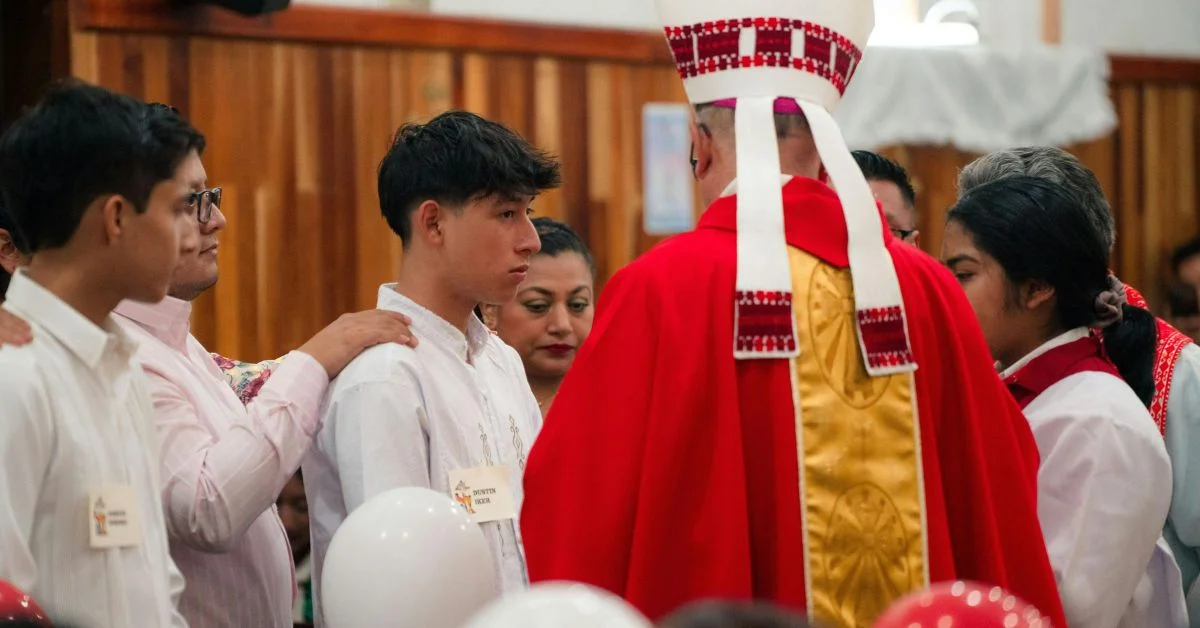
In the life of the Christian Church—especially within Anglican and related traditions—the process of discerning a calling to ordained ministry is one of deep spiritual reflection, pastoral evaluation, and communal testing. This is not a path taken lightly, nor is it entered without a sense of solemn responsibility. One of the most significant milestones in this journey of discernment is what is known as the Bishops Advisory Panel, often abbreviated as BAP. This panel serves as a structured, prayerful, and rigorous setting in which candidates for ordination are invited to reflect, engage, and explore their sense of calling in community with others.
The Bishops Advisory Panel is not simply an interview or an examination. Rather, it is a process shaped by theological depth, spiritual discernment, vocational clarity, and communal responsibility. It operates with a commitment to mutual listening, reflection, and guidance—balancing both the individual’s sense of personal calling with the Church’s responsibility to test that calling for the wider good of the Christian community. The panel seeks to affirm, challenge, and explore, always with pastoral care and theological integrity.
This article aims to explore every dimension of the Bishops Advisory Panel in detail: what it is, why it exists, how it operates, what criteria are used, how candidates prepare for it, what happens afterward, and what it reveals about the Church’s approach to calling and leadership. Whether you are a potential ordinand, a spiritual mentor, or simply interested in the Church’s processes of vocational discernment, understanding the BAP process can offer a rich insight into the life of the Church and the nature of Christian leadership today.
Understanding the Purpose of the Bishops Advisory Panel
At its core, the Bishops Advisory Panel is designed to serve a dual purpose. On the one hand, it exists to discern the authenticity of a candidate’s call to ordained ministry. On the other hand, it helps guide the Church in identifying those individuals whom God is calling to specific forms of leadership. This twofold aim ensures that the process is neither individualistic nor institutional in a rigid sense, but rather rooted in mutual spiritual discernment.
The panel does not issue a final decision about ordination. Rather, it advises the bishop of the candidate’s sponsoring diocese on whether to proceed with training for ordained ministry. While bishops typically follow the panel’s recommendation, they are not bound to do so. This advisory status underscores the importance of episcopal oversight while recognizing the discernment process as one involving multiple perspectives and spiritual gifts.
The broader theological underpinning is that calling to ordained ministry is both inward and outward. The individual may feel a deep inner sense of calling, but the Church is tasked with testing that call through prayer, Scripture, tradition, reason, and pastoral wisdom. The BAP represents a key institutional mechanism through which the Church seeks to fulfill that task.
Structure and Flow of the BAP Process
The structure of the Bishops Advisory Panel is intentionally immersive and community-oriented. It typically unfolds over several days—often two or three—in a residential retreat-like setting. This residential aspect is critical because it allows assessors and candidates to engage in informal conversation, prayer, worship, and structured activities without distraction or outside interruption.
The panel comprises a group of trained selectors or advisers, each of whom brings a particular perspective and area of focus. These advisers are usually experienced clergy, theological educators, and laypeople with pastoral and vocational insight. The panel is not adversarial or clinical but is built on pastoral care, theological seriousness, and mutual respect.
Candidates go through a series of structured exercises and interviews that typically include:
- A pastoral exercise: usually a written task involving a real or hypothetical pastoral situation, allowing the panel to assess pastoral insight and judgment.
- A group discussion: where candidates engage in a structured topic with one another, enabling selectors to observe communication style, listening skills, and group dynamics.
- An expository talk or presentation: often involving Scripture or a theological theme, testing a candidate’s ability to teach, communicate, and engage others meaningfully.
- One-on-one interviews: with different selectors, focusing on areas such as spirituality, vocation, leadership, and personal development.
- Worship and prayer: experienced as a community, affirming the spiritual nature of the gathering and the process.
Each of these components is designed to reflect the realities of ordained life: preaching, teaching, pastoral care, prayerful presence, leadership, and theological reflection. The panel creates space for candidates to be themselves, reflect openly, and receive encouragement and feedback throughout the experience.
Criteria for Selection and Assessment
The criteria used at the Bishops Advisory Panel are shaped by the Church’s understanding of ordained ministry and the qualities necessary for spiritual leadership. These criteria are not abstract but are grounded in the lived experience of ministry in local parishes, chaplaincies, and mission fields.
The most commonly used criteria include:
1. Vocation
Is there a genuine sense of calling to ordained ministry? Is the call consistent, mature, and reflected in prayer, personal narrative, and vocational testing?
2. Ministry within the Church of England (or relevant denomination)
Does the candidate understand the distinctive character of ministry in their tradition? Are they committed to its theology, polity, and liturgical practice?
3. Spirituality
Is the candidate rooted in a disciplined spiritual life? Are they growing in prayer, Scripture, sacramental awareness, and personal holiness?
4. Personality and Character
Does the candidate demonstrate emotional maturity, integrity, resilience, and openness to learning and growth?
5. Relationships: Bishops Advisory Panel
Can the candidate build healthy relationships, listen well, work collaboratively, and exercise appropriate pastoral authority?
6. Leadership and Collaboration
Is there evidence of potential for spiritual leadership and the ability to lead in a Christlike, collaborative way?
7. Faith
Does the candidate articulate a lively, informed, and authentic Christian faith?
8. Mission and Evangelism
Is there a heart for sharing the Gospel, engaging with the world, and inviting others into Christian faith?
9. Quality of Mind
Does the candidate have the intellectual capacity and curiosity required for theological study and reflective ministry?
Selectors use these criteria not as rigid checklists but as tools for discernment, recognizing that each candidate will embody different gifts and show growth in different areas. The goal is not perfection but potential for formation.
Preparing for the Bishops Advisory Panel
For candidates preparing to attend a Bishops Advisory Panel, the process can feel both exhilarating and daunting. It is a moment that brings together years of prayer, local discernment, lay and clergy support, theological study, and life experience.
Preparation involves several layers: Bishops Advisory Panel
- Personal Reflection: Candidates are encouraged to reflect deeply on their journey of faith, their motivations, their challenges, and the ways in which they have seen God at work in their lives.
- Theological Articulation: A firm grasp of core Christian beliefs and the ability to articulate them simply and sincerely is essential.
- Familiarity with the Church’s Ministry: Understanding the nature of ordained ministry, including its demands and joys, helps a candidate demonstrate realism and readiness.
- Honest Openness: There is no need to “perform” at the panel. Selectors value authenticity, humility, and the capacity to listen and grow.
- Support Networks: Engaging with spiritual directors, mentors, sending parishes, and vocations advisers ensures that the candidate is surrounded by prayer, insight, and encouragement.
Ultimately, preparation for the BAP is not about rehearsing answers but deepening one’s sense of calling, identity, and readiness. The most powerful testimony is often a life lived in sincere service, consistent growth, and joyful commitment to the Gospel.
Life After the BAP: Recommendations and Beyond
Following the Bishops Advisory Panel, candidates receive one of several possible outcomes, all framed as recommendations to their sponsoring bishop:
- Recommended for Training: The candidate is seen as ready to enter theological education and formational training.
- Not Recommended at This Time: The panel identifies areas needing further growth or testing before training begins.
- Not Recommended: The panel concludes that ordained ministry may not be the right path for the candidate at this time or in the future.
It is important to remember that each recommendation is given prayerfully, respectfully, and with the candidate’s well-being in mind. Many who are not initially recommended go on to re-apply later, enriched by further life experience and ministry.
For those recommended for training, a new chapter begins: theological education, pastoral placements, academic formation, and further spiritual growth. Yet the panel remains a significant marker—a moment of affirmation, accountability, and commissioning that continues to shape the individual’s path.
The Significance of the BAP in the Church’s Mission
The Bishops Advisory Panel is more than a vocational checkpoint. It is a theological and spiritual gift to the Church, helping it remain faithful to its calling to raise up leaders who are rooted in Scripture, responsive to the Spirit, and formed by community.
In a time when the Church faces complex challenges—from cultural change and digital transformation to theological diversity and global mission—the BAP represents a commitment to careful, collaborative leadership discernment. It reminds us that ministry is not a career but a calling, and that leadership must be cultivated with prayerful responsibility and joyful humility.
Conclusion: Bishops Advisory Panel
The Bishops Advisory Panel stands as a sacred threshold in the journey toward ordained ministry. It represents the Church’s effort to listen carefully—for the voice of the Spirit in candidates, in community, and in discernment. It honors both tradition and innovation, seeking leaders who are rooted in the Gospel and ready for the demands of modern ministry.
For those called to walk through its doors, the panel is both a challenge and a gift: a challenge to grow in self-awareness and faithfulness, and a gift of communal affirmation and spiritual clarity. Whether one emerges recommended or not, the process leaves a lasting mark—encouraging deeper faith, clearer purpose, and a renewed love for the Church and its mission in the world.
FAQs: Bishops Advisory Panel
1. What is the purpose of the Bishops Advisory Panel?
The Bishops Advisory Panel exists to help discern whether a candidate is called to ordained ministry, offering a recommendation to their sponsoring bishop after a thorough, prayerful process involving interviews, group work, and pastoral exercises.
2. Who attends the Bishops Advisory Panel?
Candidates for ordained ministry in the Church, usually after a period of local discernment and vocational support, attend the panel along with a team of trained selectors including clergy, educators, and lay leaders.
3. What are the main areas of assessment at the BAP?
Selectors assess vocation, spirituality, leadership potential, theological understanding, emotional maturity, faith articulation, and readiness for training, all using well-established Church criteria.
4. What happens after the BAP makes its recommendation?
The panel sends a recommendation to the candidate’s bishop, who then decides whether the candidate should begin training for ordination based on the advice and local discernment process.
5. Is the BAP a test or an interview panel?
No. The BAP is a discernment tool, not a pass-or-fail exam. It provides a space for prayerful listening and mutual reflection on calling, not judgment or interrogation.
For more information, click here.





